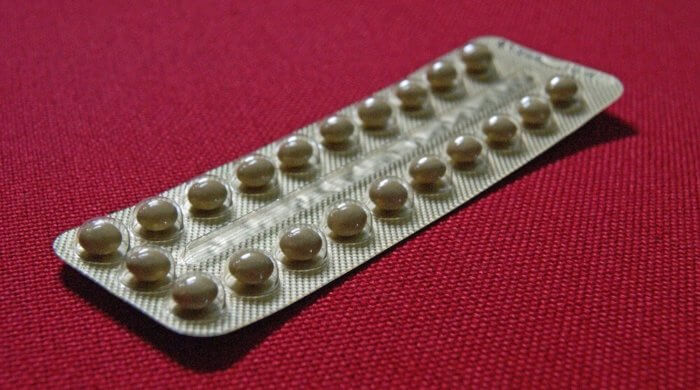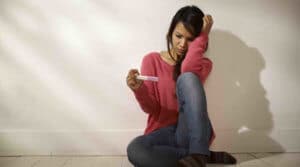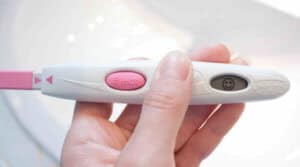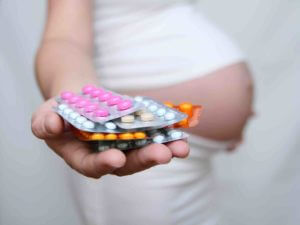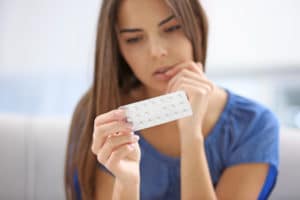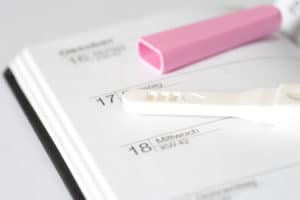When you start taking the pill, your body changes. When we stop taking the pill, the hormone balance also changes, and the body changes accordingly. But what exactly happens inside us when we stop taking the pill? What do you have to consider and how long does it take if you want to become pregnant?
Table of contents
What Should You Consider When Stopping The Pill?
The reasons for stopping the pill are as different as the variations of pills: Either you are not satisfied with it, you can’t tolerate it, you want to use a different contraceptive or you want to get pregnant.
Talk To Your Gynecologist
If you have a desire to stop taking the pill, you should talk to your gynecologist about it beforehand. For example, it is not good for your body at all if you stop taking the pill only to start taking it again a few months later. This means several hormonal changes for your body and is an enormous strain.
The Right Time
Depending on the type of pill, there are different recommendations for when to stop.
Combined Pill
In the case of the combined pill, which has both gestures and estrogen, it is advisable to finish the blister pack. After that, you will have another abortion bleeding as usual, which usually occurs during the pill break.
Minipill
If you are taking a progestogen-only pill, you can stop taking it at any time. Nevertheless, I would advise you to finish the blist pack. Better safe than sorry.
These Are The Advantages Of Stopping The Pill
When you stop taking the pill, you first upset your hormone balance. That doesn’t sound very positive at first. But once this is overcome, there are positive effects, especially in the long term.
Increased Libido
One positive aspect is that you will most likely have more desire for sex again. It happens to some that they lose the desire for sex due to the pill. This should not be taken lightly, because it often leads to dissatisfaction and relationship problems.
Effects On Weight
Coming off the pill can also affect your weight – both negatively and positively. You don’t have to be afraid of gaining a lot of weight, there are no studies to prove it.
On the contrary, many women complain about weight gain when they start taking the pill. Consequently, they are also more likely to lose weight when they stop taking the pill. This is mainly due to the fact that fluid is stored while taking the pill and this water retention disappears again after discontinuation.
Generally Higher Satisfaction And Well-being
Many women report that after they stop taking the pill, they generally feel more alive, satisfied and cheerful, and have fewer mood swings.
Improved Health
Taking hormones also has an impact on our overall health. The pill, as a primary ovulation inhibitor, can increase the risk of developing ovarian or endometrial cancer. Apart from that, of course, you also have an increased risk of thrombosis.
Another aspect to consider is the interactions if you are taking other medications. The effect of the other medication or the pill can then be reduced or even canceled out.
Negative Consequences Of Stopping The Pill
As nice as the consequences of stopping the pill can be, it can also result in a few negative consequences. Many women fear the negative consequences, but no need to worry – they are usually temporary.
Hormone change
A study from the USA showed that the pill has an effect on the choice of a partner. Sounds absurd at first, but it’s true. The study showed that women who did not take the pill were more likely to value the appearance of their partner, as opposed to those who did not take it.
So it can happen that you suddenly can’t “smell” your partner, whom you met while taking the pill. In the worst case, the relationship can break up. But it can also be the other way around: Some women report that the partnership worked better after stopping the pill, although it may have been a bit of a crisis before.
Skin Problems
Of course, our largest organ also reacts to a hormone change. Many women are afraid of blemishes and pimples. However, it should be noted that the body is subject to natural hormonal fluctuations even without hormone intake. A slight chance of the skin during the cycle is normal anyway.
Skin problems that can be traced back to the discontinuation of the pill will disappear after a few weeks at the latest.
Menstrual Problems
The pill prevents the mucous membrane in the uterus from forming to a small extent and thus prevents a fertilized egg from implanting there. As a result, abortion bleeding is usually not as heavy as normal menstrual bleeding.
As a result, period pains and cramps are not as strong. When you stop taking the pill, your menstrual bleeding and period pains may be stronger at the beginning.
Hair Loss
Hair loss is the same as skin problems. It is also related to the change in hormone balance because eventually the body suddenly stops getting hormones that it has been getting for a long period of time. This leads to hair loss in some women.
Again, you don’t have to worry about this – it’s nothing long-term and will settle down again as soon as your hormone balance has adjusted.
Why Does Every Woman React Differently When Stopping The Pill?
Some women experience strong effects when they stop taking the pill, while others experience few to no effects at all. But what is the reason for this?
On the one hand, this is of course due to the fact that every body is different and therefore reacts differently to hormonal changes. But there are also other factors that influence the reaction to stopping the pill. These include:
- Hereditary factors.
- Duration of taking the pill.
- Age of first intake.
- Duration of taking the pill.
- Cycle and health status before taking the pill.
- Health condition while taking the pill.
How Long Does It Take To Get Pregnant After Stopping The Pill?
After a certain age, the main reason for stopping the pill is the desire to have children. In principle, it is possible to get pregnant immediately after stopping the pill. As already mentioned, there may be more or less severe cycle fluctuations, which can also mean the premature absence of ovulation and menstruation.
Compared to women who used contraception by condom or vaginal foam , pill users get pregnant faster. Also, if you started the pill before age 21 or take third- and fourth-generation pills, it may take a little longer to get pregnant. Other factors include the individual fertility of the woman and her partner.
The first period after you stop taking the pill is called a cessation bleed. The next bleeding is then your first natural period. This usually starts after four to seven weeks. However, it is also possible that you may miss your period for up to six months or even longer. This is called post-pill amenorrhea.
An appointment with your gynecologist is a good idea, but it’s nothing to worry about – it’s quite normal for your cycle to be somewhat disrupted after you stop taking the pill. Some women simply need a longer recovery period.
When Do You Have The First Onset After Stopping The Pill?
When you stop taking the pill, your body starts to adjust to the natural hormonal cycle again and is no longer “pregnant”. As a result, you start ovulating and menstruating at regular intervals again. For about 50% of women, the cycle settles down again quite quickly after stopping the pill and no problems occur.
The other 50% may experience prolonged and irregular cycles in the first few months after stopping the pill, and intermittent bleeding is not uncommon. However, after 18 months at the latest, the cycle has settled down again so far.
Sources:
https://www.netdoktor.de/verhuetung/pille/absetzen/
https://www.cyclotest.de/ratgeber/pille-absetzen/
https://ovyapp.com/blogs/news/hormoncocktail-ade-das-passiert-mit-deinem-korper-wenn-du-die-pille-absetzt
